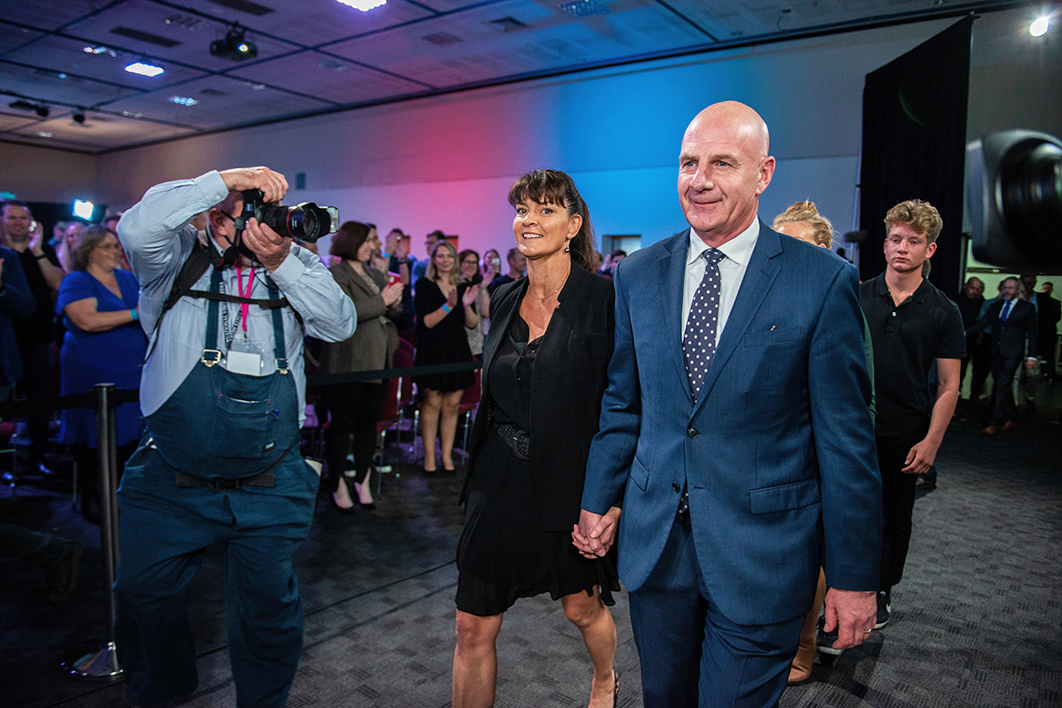As a rule, polling “boosts” are wildly overrated. Whether they come from leadership changes, well-received budgets, terrorist attacks or a surge in unauthorised maritime arrivals, by the time an election comes around, if not before, they usually turn out to have been built on sand. They are fuelled by shallow impressions and emotional responses to things that tend not to matter much at elections.
Even John Howard’s famous jump in support after the 11 September 2001 attacks and the arrival of the Tampa mostly turned to dust by the time Australians cast their ballots in November 2001. September’s double-digit two-party-preferred leads had whittled down to a touch under 2 per cent, which is probably what the government would have won by if neither event had taken place.
Budget bounces — if and when they happen — tend to be short-lived. And those midterm leadership changes are no more than a sugar hit. Even the big, long rise in figures after Kevin Rudd’s elevation to the Labor leadership in late 2006 ended with an election day result at around the level of his predecessor Kim Beazley’s polled leads.
As an election approaches, swinging voters’ minds turn back to the things they usually vote on. Any desire they have to kick out the current government is tempered by considerations of security, safety and paying off the mortgage.
But the Covid-19 polling boost experienced by all state and territory leaders more than a year ago is the real deal. It just keeps going, and it applies to actual elections as well. The virus and its repercussions permeate our lives, and it’s wrapped in the very same things that drive people’s votes: stability, income, safety. Bread-and-butter issues. Yes, Big Brother has loomed large, but he’s welcome for the time being. People cling to their institutions, their governments and the state apparatus. Border closures, scratching a longstanding territorial itch, are an added bonus.
Five re-elections have shown it’s a brilliant time for incumbent governments in Australia. From the arrival of Covid to last Saturday, four Australian governments had asked for another term: in the Northern Territory, Queensland, the Australian Capital Territory and, most recently, Western Australia. All had big wins.
But last weekend’s contest in the Apple Isle was different. Unlike the four earlier elections, this time the sitting government was Liberal. And those four earlier elections were held after governments had served more or less their full term.
The fact that the four were all Labor governments matters. When a party is in power federally — as the Liberals are at the moment — voting-intention figures tend to drift towards the other side during a state campaign. And while Labor oppositions have struggled during Covid, the Liberals have had the extra challenge of trying to balance the demands of the wider electorate with those of an excitable support base demanding politically risky pronouncements about lifting restrictions.
The other obstacle Tasmania’s premier, Peter Gutwein, created for himself was his timing. Having observed interstate counterparts reap political rewards, he decided to engineer an early election.
In the end, the Liberal vote of 49 per cent last Saturday was a few points down from what polling during the pandemic suggested, but up on pre-Covid numbers. It was also lower than at the last election. But Labor also went backwards, with the Greens and independents improving. Gutwein won, but not as resoundingly as pre-campaign polling would have led him to believe. So Tasmania did indeed follow a different trajectory from those other states and territories, but still, on current counting, the government seems likely to have achieved, just, a majority (thirteen out of twenty-five seats).
What are the federal implications? Scott Morrison already knows Covid is good for incumbents. He might also take encouragement from Tasmanian Labor’s poor showing. But there’s a caveat. Tasmania is the one jurisdiction where “bandwagon effect” can be said to apply: some voters will back the expected winner to avoid the dreaded minority government, of which Tasmania has had a few. That dynamic doesn’t usually apply to federal elections, although we can expect the Coalition and the Greens to be playing up the prospect of a Labor–Greens government during the next campaign.
In fact, the Morrison government has been the odd one out in the polling. While the prime minister’s ratings have soared, voting intentions have remained mediocre. If they drop by as much as the Tasmanian Liberals’ did, the federal Coalition is gone.
Scott Morrison and his colleagues would love to go early to bank some of that Covid goodwill. Possibly the PM can take some heart from the apparent absence of voter malice towards the premier’s obvious cynicism in cutting parliament short. If there was any anger, it seems to have been overwhelmed by Covid magic.
Covid is still great for Australian governments; the main question is: how long will that last? •





